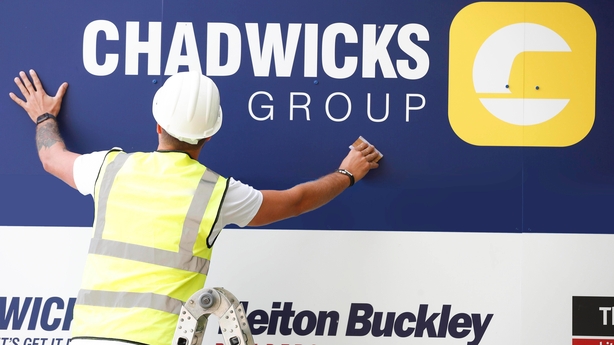The parent company of Woodie's and Chadwicks, Grafton Group, has reported higher revenues and lower profits for the six months to the end of June as it announced a new share buyback programme for up to £50m.
The builders materials and DIY group said its half year revenues rose by 3.2% to £1.189 billion after what it called a "resilient" first half performance.
But its adjusted profit before tax fell by over 27% to £104.3m from £143.4m the same time last year - as expected by the company.
Grafton said today that its Woodie's DIY, Home and Garden retail business performed strongly, while it also noted a strong performance from its UK Manufacturing businesses.
But volumes were lower across its distribution businesses, it added.
The Grafton Board has declared an interim dividend of 10 pence per share, an increase of 8.1% on last year’s interim dividend of 9.25 pence.
Eric Born, Grafton's chief executive, said the strength of the group's market positions and its experienced management teams have underpinned a resilient performance in the face of challenging conditions during the first half.
"Grafton’s robust cash generation has enabled us to return £132.7m to shareholders in the half year by way of share buybacks and dividends whilst leaving our net cash position broadly unchanged," the CEO said.
"This strong balance sheet, together with our nimble operating structure, will allow us to take advantage of organic and acquisitive growth opportunities," he said.
"Whilst uncertainties remain in the short term, we are confident that Grafton is exceptionally well positioned to benefit as the cycle turns, markets normalise and consumer confidence gains momentum," he added.
Breaking down its divisions, Grafton said that its Chadwicks business - which is part of its Distribution division - operated at high levels of activity in a market that is supported by sound demand fundamentals.
It noted that new build construction activity was resilient.

But demand was lower for materials supplied for housing refurbishment, maintenance and improvement (RMI) projects in a tight market for skilled labour where affordability pressures also weighed on activity.
In the UK, its Selco business saw challenging trading conditions in the residential RMI market.
This came as households reduced investment on home improvements and discretionary spending on repairs and maintenance in response to the cost-of-living increases, the decline in real disposable incomes and interest rate rises.
Selco solely supplies the RMI market which has been hit hard in the current downturn although the pace of the decline in volumes moderated towards the end of the half year.
Meanwhile, subdued demand and weak sentiment resulted in lower activity in the new housing market in Northern Ireland and contributed to a decline in revenue and profitability in the MacBlair distribution business.
Grafton said that trading in its Woodie's DIY, Home and Garden business - part of the Retailing division - performed strongly driven by good levels of demand for seasonal products in the second quarter.
And CPI Mortars - part of its Manufacturing division - continued to demonstrate resilience as dry mortar volumes held up well despite a softening of activity in the new housing market, while StairBox continued to strengthen its market position increasing the volume of bespoke staircases supplied to the secondary housing market.

